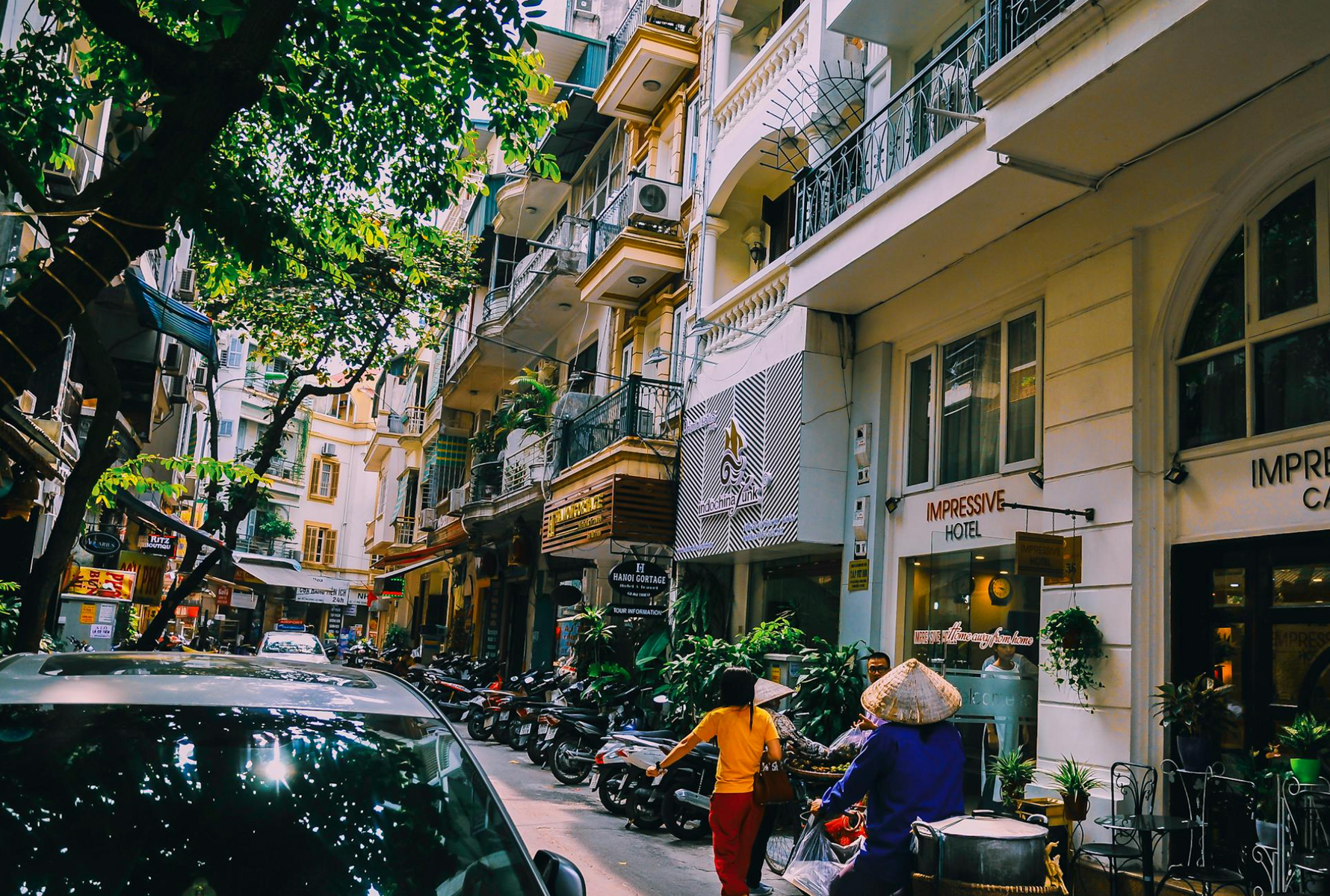
Tet: The Lunar New Year Festival
Tet Nguyen Dan represents more than just a new year celebration; it embodies the Vietnamese spirit of family unity and cultural renewal. This most significant of Vietnam festivals transforms the entire country for several weeks, with preparations beginning months in advance. Families thoroughly clean their homes to sweep away bad fortune and decorate with yellow mai flowers in the south or pink peach blossoms in the north, each carrying specific symbolic meanings. Traditional customs include visiting pagodas at midnight on New Year's Eve, paying respect to ancestors, and exchanging red envelopes containing "lucky money." Special foods like banh chung (sticky rice cakes) carry deep symbolic meaning, with their square shape representing ancient beliefs about the earth and their ingredients symbolizing the harmony between heaven and earth. During Tet, even the bustling cities seem to pause as families gather for reunion dinners and traditional games. Markets bustle with activity in the days leading up to the festival, as people purchase decorations, new clothes (another important tradition), and ceremonial items. The first visitors to a home in the new year (known as xông đất) are carefully chosen, as they are believed to influence the family's fortune for the entire year.Mid-Autumn Festival: A Celebration of Children and Harvest
The Mid-Autumn Festival demonstrates how agricultural traditions have evolved into cherished cultural celebrations. Celebrated on the 15th day of the eighth lunar month, this festival traditionally marked the end of the harvest season but has become primarily associated with children and family unity. Cities and towns come alive with lantern processions, lion dances, and moon-viewing parties. The festival's focus on children reflects ancient beliefs about the innocence needed to communicate with the spiritual world during the full moon. Traditional mooncakes, filled with various sweet and savory ingredients, carry their own symbolism, with their round shape representing completeness and unity. Local communities organize performances of traditional water puppetry, telling ancient stories that have entertained generations. The festival provides a unique window into Vietnamese family life and the importance placed on children in Vietnamese culture.Do Doan Festival: Fishing Traditions Come Alive
One of Vietnam festivals' most unique celebrations, the Do Doan Festival in the coastal province of Thua Thien-Hue, honors the fishing heritage that sustains many coastal communities. Held during the first lunar month, this three-day celebration begins with a solemn ceremony to pray for abundant catches and safe voyages. Local fishermen compete in boat races using traditional wooden vessels, while skilled artisans demonstrate net weaving and boat repair techniques that have been passed down through generations. The festival's highlight comes during evening performances when hundreds of fishing boats illuminate the water with traditional lanterns, creating a spectacular display that symbolizes the hopes for a prosperous fishing season. Visitors can participate in traditional games that test fishing skills and sample regional seafood specialties prepared according to centuries-old recipes.Kate Festival: Cham Cultural Heritage
The Kate Festival, celebrated by the Cham ethnic minority in Ninh Thuan Province, represents one of Vietnam festivals' most distinctive cultural expressions. Taking place during the seventh month of the Cham calendar (usually September or October), this festival honors ancient Cham kings and cultural heroes who helped establish and defend Champa civilization. The celebration features unique musical performances using traditional Cham instruments, while skilled dancers perform ancient court dances in colorful traditional costumes. Temple ceremonies combine Hindu and indigenous religious elements, reflecting the Cham people's unique cultural heritage. Local families open their homes to visitors during this period, sharing traditional Cham cuisine and teaching guests about their customs and history.Lim Festival: Celebrating Ancient Melodies
The Lim Festival in Bac Ninh Province showcases "quan ho" folk songs, a UNESCO-recognized form of cultural heritage. Taking place during the first lunar month, this festival transforms the Lim hill area into a grand stage for Vietnam's most accomplished folk singers. Young men and women, dressed in traditional clothing, perform alternate verses of love songs that have been preserved for centuries. Beyond the musical performances, the festival features traditional craft demonstrations, including silk weaving and bamboo work, connecting visitors to ancient artistic traditions. Local artisans teach traditional embroidery techniques, while food stalls offer regional specialties that have historically been associated with quan ho performances.Hung Kings Temple Festival: National Identity Celebration
This major festival honors the legendary Hung Kings, considered the founders of the Vietnamese nation. Celebrated on the tenth day of the third lunar month at the Hung Temple complex in Phu Tho Province, this event draws millions of Vietnamese pilgrims. The festival combines solemn ceremonies with cultural performances and traditional games. A highlight is the banh chung and banh giay making competition, where teams prepare these traditional rice cakes according to ancient methods. The festival's procession features traditional music, dance, and martial arts demonstrations, while historical reenactments bring ancient stories to life. This celebration particularly demonstrates how Vietnam festivals can unite traditional religious observances with expressions of national identity and pride.Southern Fruit Festival: Agricultural Heritage
Held annually in Ho Chi Minh City during summer months, this modern festival celebrates Vietnam's agricultural abundance, particularly its tropical fruits. While newer than many traditional Vietnam festivals, this event has quickly become significant for showcasing the country's agricultural heritage and innovation. Visitors can sample hundreds of fruit varieties, watch fruit-carving demonstrations, and participate in competitions for growing and presenting the most impressive fruit displays. The festival includes workshops on sustainable farming practices and the cultural significance of different fruits in Vietnamese tradition, making it both educational and entertaining.These festivals demonstrate the remarkable diversity of Vietnamese cultural celebrations, from ancient religious observances to modern cultural showcases. Each event provides unique insights into different aspects of Vietnamese life, from agricultural traditions to artistic heritage. For visitors interested in experiencing these celebrations, advance planning is essential, as festival dates often follow the lunar calendar and can vary year to year. Many festivals also have specific customs and etiquette guidelines that visitors should respect to fully participate in these meaningful cultural experiences.


Comments